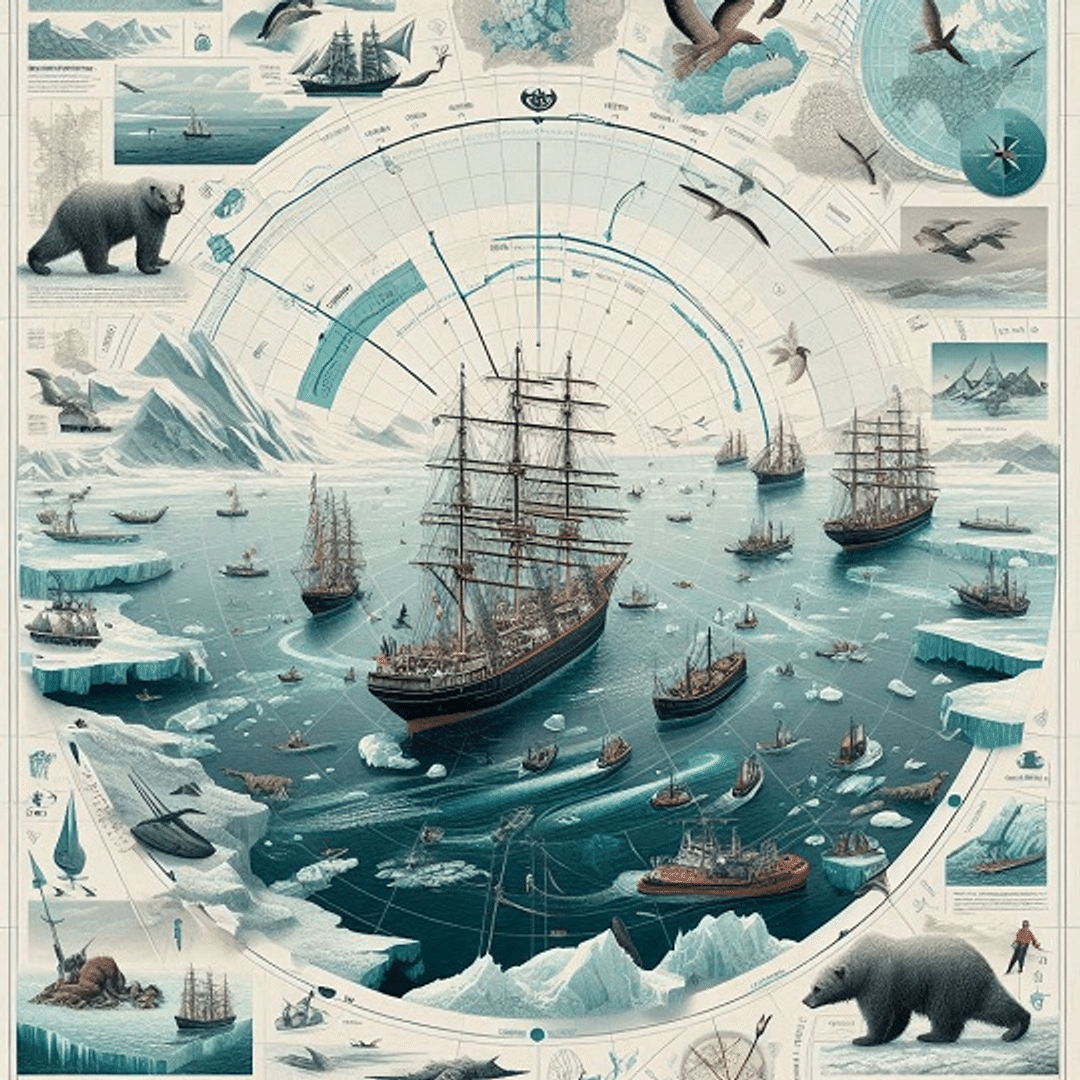The Arctic Sea Route is attracting significant global attention for various reasons. Understanding the importance of this route requires examining several key factors.
1. Climate Change and Ice Melting
Climate change is causing the ice in the Arctic region to melt. Areas of the Arctic Sea, previously inaccessible due to thick ice, are now navigable during summer months. This makes the Arctic Sea Route an increasingly viable alternative, particularly as it is significantly shorter than traditional sea routes, saving time and costs. The Arctic Sea Route, traversing the northernmost part of the globe, is emerging as a vital trade route connecting Europe and Asia.

Importance of the Arctic Sea Route
2. Economic Advantages
The Arctic Sea Route is significantly shorter than existing sea routes, drastically reducing transportation time.
- Reduced Transportation Time: For example, transportation time between Asia and Europe can be reduced by up to 40%. This leads to fuel cost savings, reduced logistics costs, and increased trade.
- Reduced Economic Costs: The route through the Arctic Sea saves fuel consumption and time compared to the traditional Suez Canal route. For instance, the route from Shanghai, China to Rotterdam, Netherlands is approximately 2,800 nautical miles (about 5,200 km) shorter than the traditional Suez Canal route. This translates to savings in fuel costs and labor costs.
- Increased Global Trade: These economic benefits are a major reason why many shipping companies are favoring the Arctic Sea Route. The shorter route through the Arctic maximizes logistics efficiency and enables faster transportation of goods. This can have a positive impact on the global economy.
3. Resource Development
The Arctic region possesses abundant resources, including oil, gas, and rare earth elements. The melting ice due to climate change is making access to these resources easier.
- Rare Earth Resources: Rare earth elements are essential raw materials used in various advanced industries such as electric vehicle batteries, smartphones, computers, and renewable energy technologies. These resources are globally scarce, and rare earth element development in the Arctic region could significantly contribute to technological advancements.
- Oil and Gas: The Arctic region holds significant oil and gas reserves. These resources can play an important role in energy security and economic development. Oil and gas development in the Arctic can contribute to increasing energy independence for various countries.
- Other Resources: The Arctic also has abundant other metallic resources, including iron ore, copper, and nickel. These resources can contribute to industrial development and economic growth.
Russia is already developing many resources in the Arctic, and other countries are also showing interest. This resource development can greatly assist the economic development of each country. The Arctic's resources can play an important role in global energy security and economic stability.
4. Military and Strategic Importance
The Arctic Sea Route is of considerable military importance. Here are some reasons why.
- Military Movement and Deployment: The sea route through the Arctic can play a crucial role in military movement and deployment. Rapidly moving military assets via the Arctic offers a significant strategic advantage, particularly important during emergencies.
- Ballistic Missile Trajectory: The Arctic region is part of ballistic missile trajectories, playing a vital role in military surveillance and defense. Monitoring and defending against missiles traveling through the Arctic is crucial for national security, particularly against potential threats like Russia.
- Thule Air Base: The United States monitors the Arctic Sea via Thule Air Base in Greenland. This base is part of the Ballistic Missile Early Warning System (BMEWS) and is connected to the North American Aerospace Defense Command (NORAD). Thule Air Base plays a significant role in strategic surveillance and defense of the Arctic region, also helping to deter Russian military activities.
- Maintaining Military Hegemony: The Arctic Sea Route is a crucial element in military movement and military strategy. This provides the ability to maintain military dominance in the Arctic region and respond quickly to potential threats. Military dominance in the Arctic can also influence the global military balance.
5. Environmental Changes and Scientific Research
The Arctic region is one of the first areas to be affected by climate change, making scientific research on environmental change crucial. Changes in ice melt and resulting ecosystem changes can affect the entire world, and researching this is essential for responding to climate change. The Arctic Sea is becoming an important location for such scientific research. Environmental change research in the Arctic Sea can make a significant contribution to understanding and predicting global climate change.
Conclusion
The Arctic Sea Route is becoming increasingly important due to various factors, including ice melt due to climate change, economic opportunities, resource development, military and strategic importance, and environmental change and scientific research. These factors combine to suggest that the Arctic Sea Route will play an important role in the future. The importance of the Arctic Sea Route will continue to increase in the future, significantly impacting the global economy and politics.

Comments0